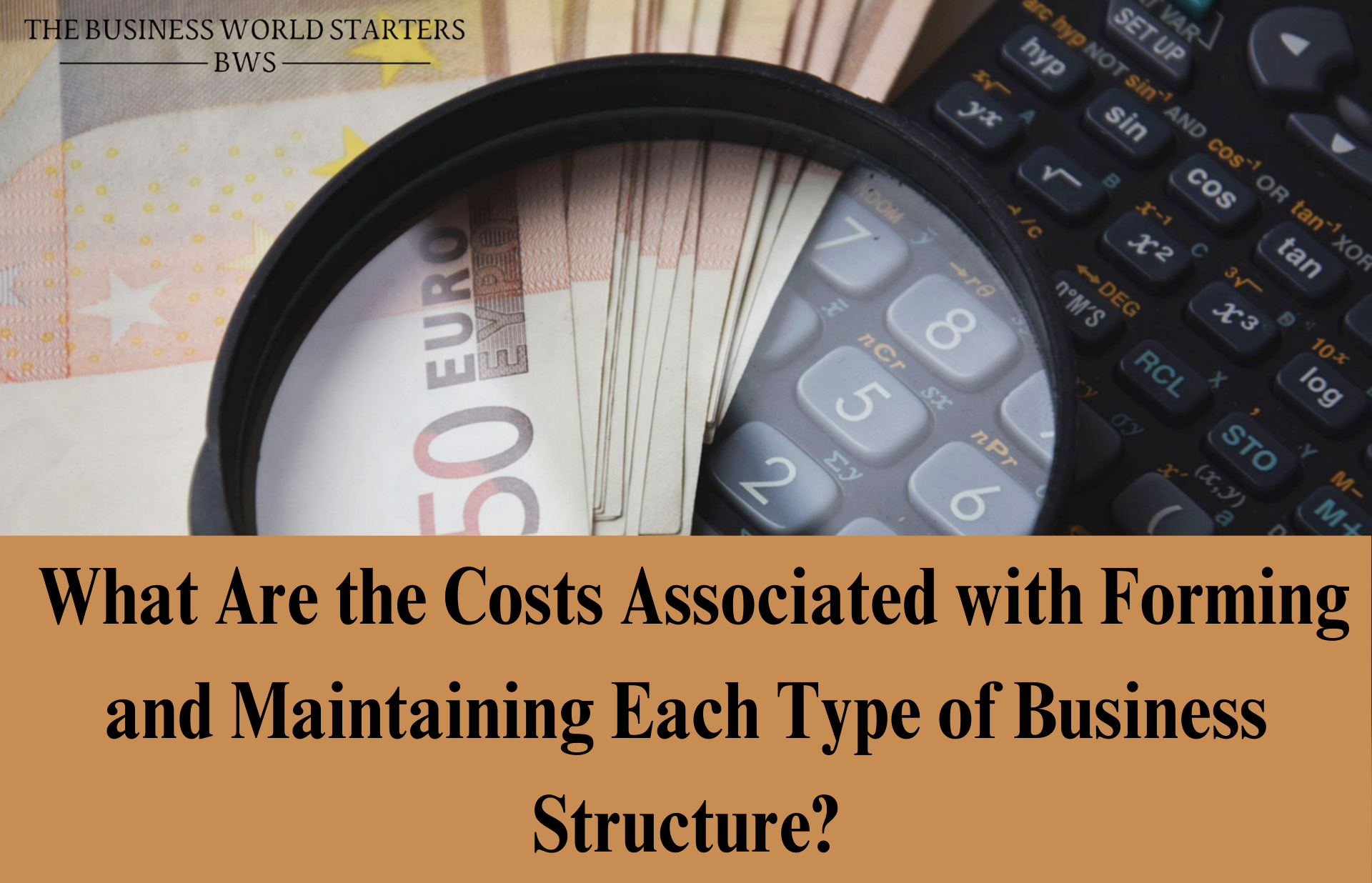Choosing the right business structure is one of the first and most important decisions you’ll make as an entrepreneur. However, beyond the legal and operational considerations, the costs associated with forming and maintaining each type of business structure can significantly impact your budget. Understanding these costs upfront can help you make an informed decision that aligns with your financial resources and long-term goals.
Sole Proprietorship
Formation Costs:
- Forming a sole proprietorship is the most cost-effective option. In most cases, you don’t need to file any formation documents with the state, which means no significant initial costs. However, if you plan to operate under a business name different from your own, you may need to file a "Doing Business As" (DBA) registration, which typically costs between $10 and $100, depending on your location.
Maintenance Costs:
- Ongoing costs are minimal. You may need to renew your DBA periodically, but there are generally no annual filing fees or required state reports. Additionally, because you and your business are legally the same entity, your business income is reported on your personal tax return, so you won’t need to file separate business taxes.
Limited Liability Company (LLC)
Formation Costs:
- Forming an LLC involves filing Articles of Organization with your state, and the cost can range from $50 to $500, depending on the state. Some states may also require you to publish a notice of your LLC formation in a local newspaper, which could add an additional $50 to $200.
Maintenance Costs:
- LLCs have ongoing costs, including annual or biennial report fees, which can range from $20 to $500 depending on the state. Some states also impose a franchise tax or annual LLC tax, which can range from $100 to $800 or more annually. Additionally, if you elect to have your LLC taxed as a corporation, you may incur separate business tax filing fees.
Corporation (C-Corp and S-Corp)
Formation Costs:
- Forming a corporation typically involves filing Articles of Incorporation with your state, with fees ranging from $50 to $500. You may also need to pay for a corporate seal, stock certificates, and initial meeting minutes, which could add $50 to $200 to your startup costs. If you’re forming an S-Corp, you’ll need to file an IRS Form 2553, but this doesn’t have a filing fee.
Maintenance Costs:
- Corporations have higher ongoing costs compared to sole proprietorships and LLCs. These include annual report fees, which can range from $50 to $500, and franchise taxes, which can range from a few hundred dollars to over $800 annually, depending on your state. Additionally, corporations are required to hold annual shareholder meetings, keep detailed records, and may need to pay for legal and accounting services to comply with corporate formalities.
Tax Costs:
- C-Corps are subject to double taxation, where the corporation pays taxes on its income, and shareholders pay taxes again on any dividends received. S-Corps avoid double taxation but still need to file a corporate tax return, which could incur additional tax preparation costs.
Partnership
Formation Costs:
- Forming a general partnership is relatively inexpensive, as it usually doesn’t require formal state registration. However, if you’re operating under a business name, you’ll need to file a DBA, which can cost between $10 and $100. If you choose to form a limited partnership (LP) or limited liability partnership (LLP), you’ll need to file with the state, with fees ranging from $50 to $500.
Maintenance Costs:
- General partnerships have minimal ongoing costs, similar to sole proprietorships. However, LPs and LLPs may have to pay annual or biennial report fees, which can range from $20 to $500. Additionally, some states impose a franchise tax or annual fee on LPs and LLPs, which could add to your ongoing expenses.
Additional Costs to Consider
Professional Fees:
- Regardless of the business structure, you may incur costs for legal, accounting, and consulting services to ensure your business complies with all regulations. These fees can vary widely based on your location and the complexity of your business.
Insurance:
- While not legally required for all business structures, business insurance is an essential cost to protect your assets. The cost of insurance varies depending on the type of coverage, the size of your business, and your industry.
Licenses and Permits:
- Depending on your business type and location, you may need to pay for local, state, or federal licenses and permits. These costs can range from as low as $50 to several thousand dollars annually.
In conclusion, the costs associated with forming and maintaining a business structure can vary significantly depending on the type you choose. While sole proprietorships are the most cost-effective, LLCs and corporations offer liability protection and other benefits that might justify their higher costs. Partnerships fall somewhere in between, with costs depending on the specific type of partnership.
It’s important to consider not only the upfront costs but also the ongoing expenses when deciding which structure is right for your business. Consulting with legal and financial professionals can help you navigate these costs and choose the best structure for your needs.
If you’re interested in learning more about how business structures impact your startup’s operations and long-term success, check out our article on "Business Structures: Sole Proprietorship vs. Corporation vs. LLC." You can find it here for a deeper dive into each structure's benefits and challenges.
